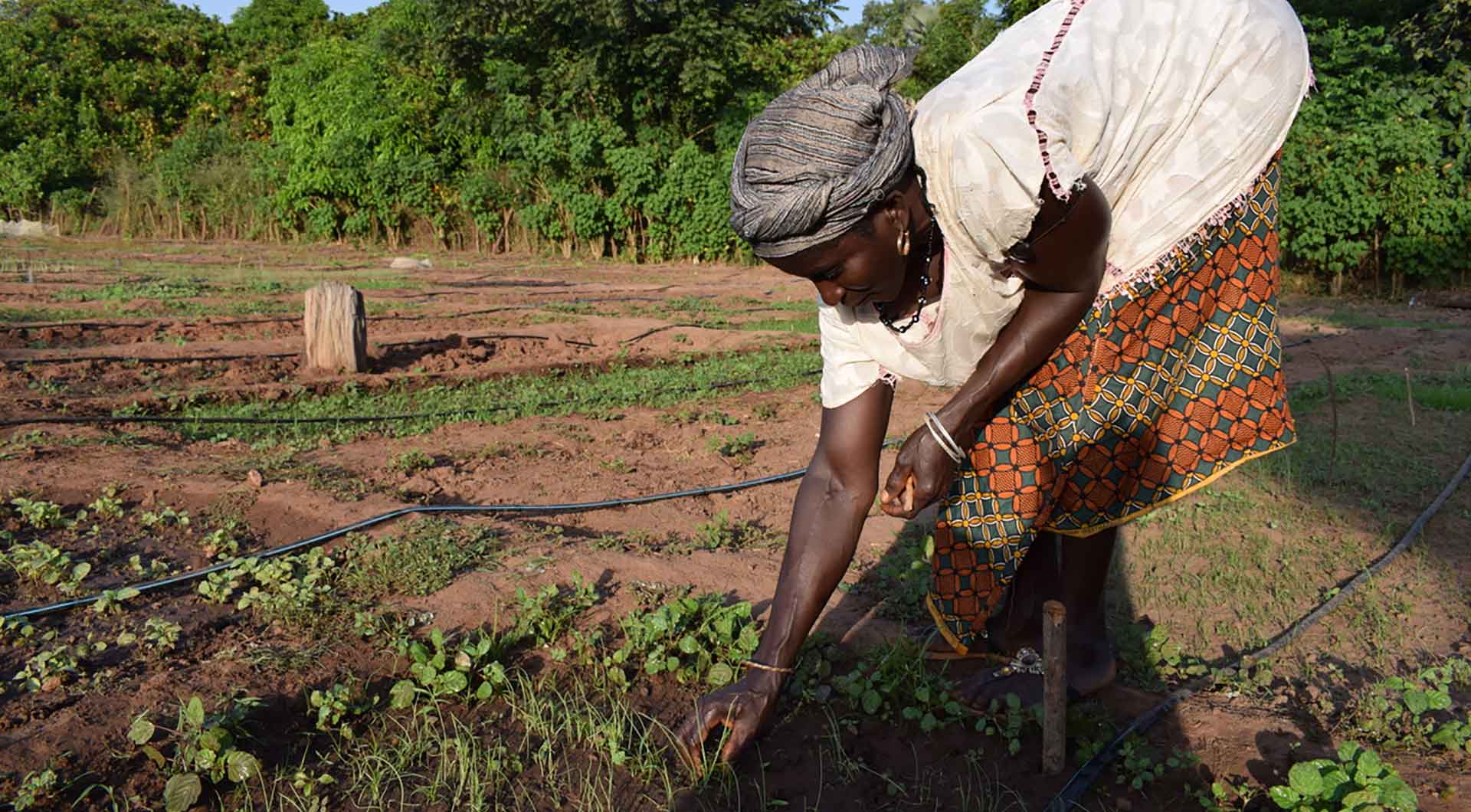
In Angola, many thousands of women, especially in towns and cities, dream of establishing their own small enterprise, but getting started and keeping the enterprise running is too much of a challenge when their focus is earning enough money to feed the family. They resort to the informal economy, selling produce in the street and without a licence.

Leocádia Da Conceição Sessenta Gil
ADPP Angola has supported entrepreneurial initiatives for more than three decades, making quality second hand clothes available for women to buy in bulk and sell at market stalls. This support developed over time to include assistance in opening bank accounts, use bankcards, obtain municipal trading licences and organise the stalls.
In recent years, ADPP together with Sympany NL has taken a further step to promote the entrepreneurial spirit of often-vulnerable women through courses in sewing and business skills. At one level, women selling second hand clothes could add value to their wares by adapting or transforming items. At another level, they could make new clothes, either to order or to meet a growing demand for certain types of clothing.
At centres in Cabinda, Benguela and Luanda, groups of women spend six months learning about everything from the basics of the sewing machine, stitches and materials, to taking measurements, drawing and cutting patterns, sewing all kinds of clothes for women, men and children, as well as household items and bags. At the same time, they learn the key aspects of starting and running a business, producing a business and marketing plans before the end of the course.

Skills training
A number of women start their own business almost before completing the dressmaking course. For the majority, a six-month incubation period leading to graduation is more than welcome, as it provides a safety net, an opportunity to continue to use the centres’ facilities, help with the more difficult sewing techniques, and time to work on business plans.
The Covid-19 pandemic and initial state of emergency meant market traders had to halt their activities, and the various dressmaking projects had to adapt to new regulations including social distancing. The silver lining of this otherwise dark cloud was in the form of facemask production, resulting in thousands of facemasks being made and sold so the women could continue to earn a living, ensure a supply of affordable masks, and provide the poorest members of the community with free masks.

Graduation ceremony at Zango
According to the latest figures from the Women in Action projects, more than 1,000 women are running their own business thanks to the dressmaking and business skills courses, with hundreds more following in their footsteps. Graduates express their desire to pass on their knowledge to others, some join forces to establish a small business and others offer job opportunities to more women from their neighbourhood.
Leocádia Da Conceição Sessenta Gil from Dakota in Benguela said “Now I've got my own sewing machine and I'm working from home. I am thinking about one day expanding my establishment and helping other women street vendors who are in the situation where I was.” Formosa Pimentel from Tala Hady in Cazenga, Luanda, found work as a seamstress and of her wage, “half of the money I save in order to buy my materials and finish my workshop, and the rest of the money goes on food for the home.”
Adelaide Culionga de Fátima Tomé from Zango, Luanda, graduated in July this year (2021) and explained “we already have customers, but sometimes we sell as street vendors because we have already acquired our street vendor permits. We have days when we stay in the workshop and days to turn to marketing to find new customers and sell our wares. Today my neighbours admire and praise my work and my family values me a lot.”
Leocádia Da Conceição Sessenta Gil
Graduation ceremony at Zango
Skills training


